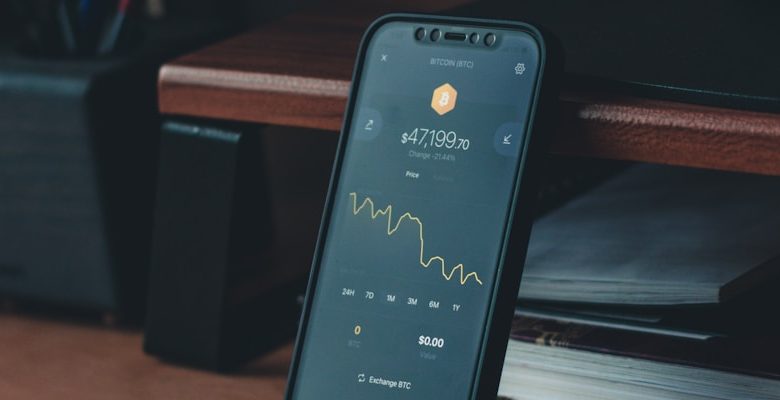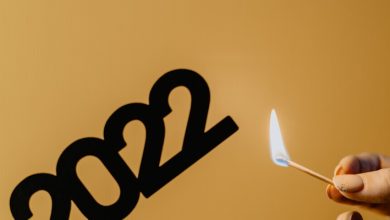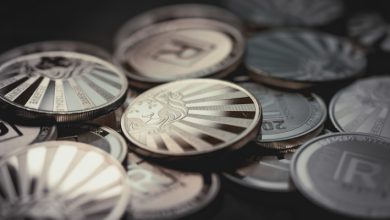The Future of Blockchain Governance: DAOs and Beyond

- Understanding the Role of Decentralized Autonomous Organizations (DAOs) in Blockchain Governance
- Challenges and Opportunities in Implementing DAOs for Effective Governance
- Exploring the Evolution of Governance Models in the Blockchain Space
- The Impact of DAOs on Traditional Governance Structures
- Regulatory Considerations for DAOs and Decentralized Governance
- Innovations in Blockchain Governance: What Lies Beyond DAOs?
Understanding the Role of Decentralized Autonomous Organizations (DAOs) in Blockchain Governance
Decentralized Autonomous Organizations (DAOs) play a crucial role in blockchain governance. DAOs are entities that operate through smart contracts on the blockchain, allowing for decentralized decision-making and management. These organizations are governed by code rather than by individuals, enabling a more transparent and democratic process.
DAOs have the potential to revolutionize traditional governance structures by eliminating the need for intermediaries and increasing efficiency. By using blockchain technology, DAOs can streamline decision-making processes, reduce costs, and increase accountability. This innovative approach to governance has the potential to disrupt various industries and create new opportunities for collaboration and innovation.
One of the key benefits of DAOs is their ability to provide a platform for community participation and engagement. Through voting mechanisms embedded in smart contracts, members of a DAO can influence decisions and shape the direction of the organization. This participatory approach fosters a sense of ownership and responsibility among members, leading to more inclusive and effective governance.
Furthermore, DAOs can help address the challenges of traditional governance structures, such as corruption and inefficiency. By utilizing blockchain technology, DAOs can ensure transparency and immutability of records, making it difficult for malicious actors to manipulate the system. This level of security and trust can help build credibility and attract more participants to the organization.
In conclusion, DAOs have the potential to transform blockchain governance by providing a decentralized, transparent, and efficient alternative to traditional structures. By harnessing the power of smart contracts and community participation, DAOs can enable more effective decision-making processes and create new opportunities for collaboration and innovation in the blockchain ecosystem.
Challenges and Opportunities in Implementing DAOs for Effective Governance
Implementing decentralized autonomous organizations (DAOs) for effective governance poses both challenges and opportunities in the blockchain space. One of the main challenges is the lack of regulatory clarity surrounding DAOs, which can hinder their widespread adoption. Additionally, ensuring transparency and accountability within DAOs can be difficult, as decision-making processes are decentralized and consensus-driven. However, DAOs also present unique opportunities for more inclusive and participatory governance structures. By leveraging blockchain technology, DAOs can enable direct voting and decision-making by token holders, reducing the need for intermediaries and increasing efficiency.
Exploring the Evolution of Governance Models in the Blockchain Space
The evolution of governance models in the blockchain space has been a fascinating journey, with various approaches being explored to find the most effective way to govern decentralized systems. From the early days of centralized control to the rise of decentralized autonomous organizations (DAOs), there has been a continuous push towards more inclusive and transparent governance structures.
One of the key challenges in this evolution has been finding the right balance between decentralization and efficiency. While decentralization is a core principle of blockchain technology, it can sometimes lead to slow decision-making processes and gridlock. This has led to the development of hybrid governance models that combine elements of both centralized and decentralized control.
DAOs have emerged as a promising solution to the governance challenges faced by blockchain networks. These organizations are governed by smart contracts and run on blockchain technology, allowing for transparent and automated decision-making processes. DAOs enable stakeholders to vote on proposals and make decisions collectively, without the need for a central authority.
As blockchain technology continues to evolve, we can expect to see further experimentation with governance models. From proof-of-stake mechanisms to liquid democracy, there are a wide range of approaches being explored to improve the governance of decentralized systems. The future of blockchain governance is likely to be dynamic and ever-changing, as developers and stakeholders work together to find the most effective solutions for governing the networks of tomorrow.
The Impact of DAOs on Traditional Governance Structures
Decentralized Autonomous Organizations, or DAOs, are revolutionizing traditional governance structures by enabling decentralized decision-making and operations through blockchain technology. DAOs are community-driven entities that operate based on smart contracts, allowing members to vote on proposals and execute actions without the need for intermediaries.
One of the key impacts of DAOs on traditional governance structures is the shift towards transparency and accountability. With all transactions and decisions recorded on the blockchain, stakeholders can easily track and verify the actions of the organization. This increased transparency can help build trust among members and external parties, enhancing the overall governance framework.
Furthermore, DAOs challenge the hierarchical nature of traditional governance models by promoting a more inclusive and participatory approach. Members of a DAO have equal voting rights and can contribute to decision-making processes regardless of their position or status within the organization. This democratization of governance can lead to more innovative solutions and a stronger sense of community ownership.
However, the rise of DAOs also presents challenges to traditional governance structures, particularly in terms of regulatory compliance and legal frameworks. As DAOs operate across borders and involve global participants, regulatory bodies may struggle to effectively oversee and regulate these decentralized entities. This regulatory uncertainty could hinder the widespread adoption of DAOs and require policymakers to adapt to the changing landscape of governance.
Regulatory Considerations for DAOs and Decentralized Governance
When it comes to regulatory considerations for DAOs and decentralized governance, it is essential to understand the potential implications of operating within the existing legal framework. While blockchain technology offers many benefits, it also presents challenges in terms of compliance and accountability.
One of the main concerns surrounding DAOs is the lack of centralized control, which can make it difficult to determine who is ultimately responsible for any legal or regulatory violations. This ambiguity can create uncertainty for both participants and regulators, leading to potential legal risks.
Another important consideration is the cross-border nature of blockchain networks, which can complicate regulatory compliance efforts. Different jurisdictions may have varying regulations regarding decentralized governance structures, making it crucial for DAOs to carefully navigate these legal landscapes.
Additionally, the anonymity and pseudonymity afforded by blockchain technology can pose challenges for regulators seeking to enforce laws related to identity verification and anti-money laundering. Balancing privacy concerns with regulatory requirements is a key issue that DAOs must address.
Overall, while DAOs offer exciting possibilities for decentralized governance, it is essential for projects to proactively engage with regulators to ensure compliance with existing laws. By addressing regulatory considerations early on, DAOs can help build trust with stakeholders and pave the way for a sustainable future in blockchain governance.
Innovations in Blockchain Governance: What Lies Beyond DAOs?
As blockchain technology continues to evolve, innovations in governance structures are becoming increasingly important. While DAOs have been a significant development in decentralized governance, there are emerging trends that suggest a shift towards more sophisticated models.
One key area of exploration is the concept of decentralized autonomous organizations (DAOs) that go beyond the traditional smart contract-based models. These new forms of governance may incorporate elements such as liquid democracy, quadratic voting, or futarchy to enhance decision-making processes and increase community engagement.
Another promising direction is the use of blockchain oracles to bridge the gap between on-chain governance systems and real-world data. Oracles can provide external information to inform decision-making processes, making governance more robust and adaptable to changing circumstances.
Furthermore, the integration of artificial intelligence (AI) and machine learning algorithms into governance mechanisms could revolutionize how decisions are made within decentralized organizations. By leveraging AI, DAOs can automate routine tasks, optimize resource allocation, and even predict future outcomes with greater accuracy.
Overall, the future of blockchain governance is likely to be defined by a combination of these innovative approaches that build upon the foundation laid by DAOs. By embracing new technologies and experimenting with novel governance structures, decentralized organizations can continue to evolve and adapt to the ever-changing landscape of the blockchain ecosystem.



